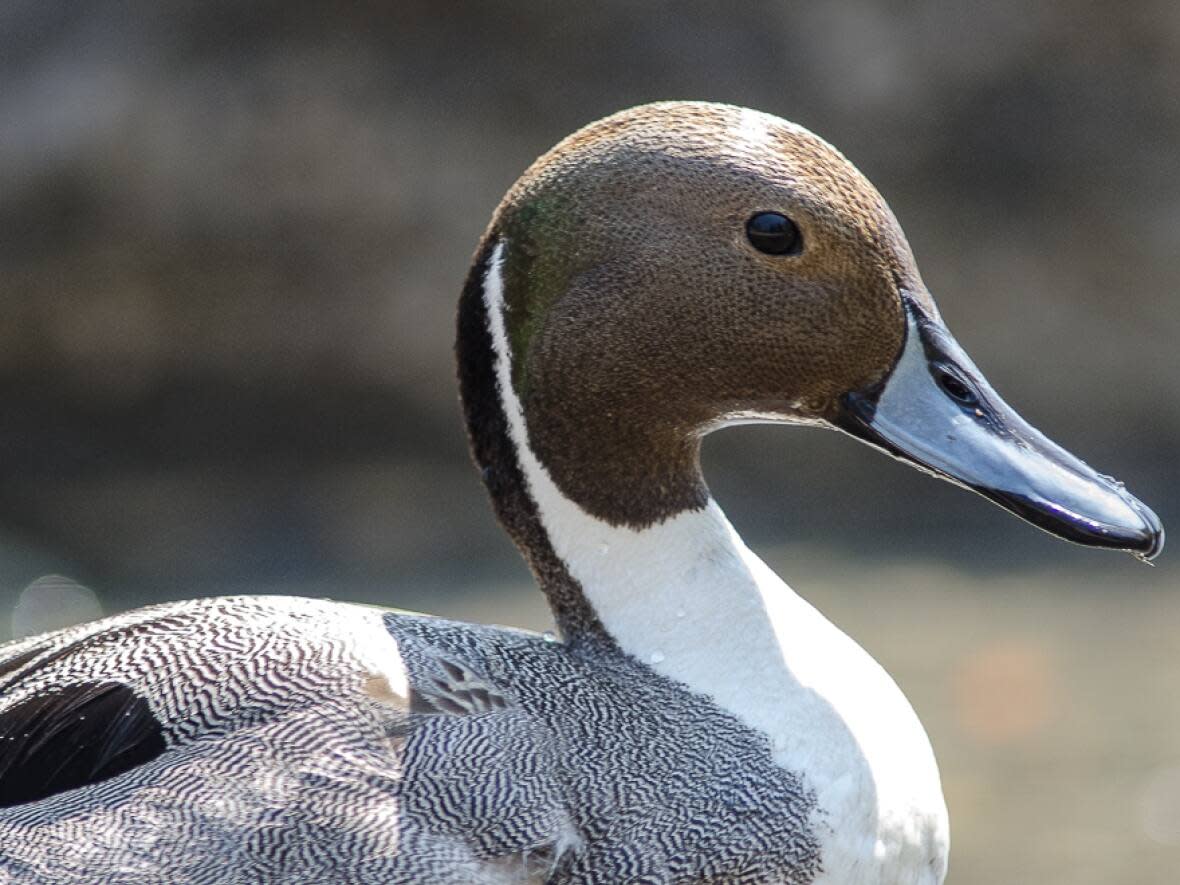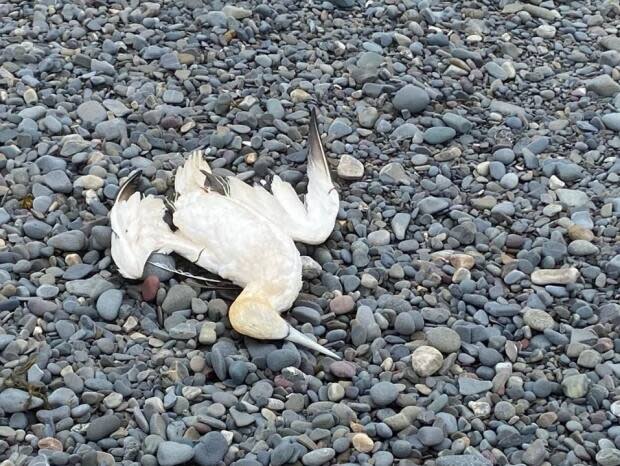Biologists say avian flu might be infecting St. John's ducks


After several recent instances of dead birds found in and around St. John's, biologists are raising concerns that ducks in the city might be carrying the highly pathogenic H5N1 avian flu.
"Some of the ducks we've been sampling are living and but infected," said Andrew Lang, a microbiologist who has been studying avian flu for over 15 years. He's
Lang, one of the scientists looking into the spread of the avian flu in the city in the wake of the deaths of two swans and seven ducks in Bowring Park, said the virus is still circulating in bird populations and caution is necessary. Though the avian flu has been an ongoing concern among Newfoundland and Labrador birds since late 2021, Lang said it briefly seemed like the risk had subsided.
"It seemed like it was gone. We've been testing locally some of the hunter-shot murres and we weren't detecting anything," said Lang. "Suddenly, out of nowhere, the virus is back and we have these mortality events in the city."
A City of St. John's spokesperson said they believe the Bowring Park birds died of avian flu and samples have been sent away for testing to confirm the presence of the virus.

Lang said he figures the virus will continue to circulate in susceptible bird populations.
"The virus is just good at transmitting between birds when they're in contact and in wetland areas. So it's just the perfect spot for transmission of this virus."
Lang said the risk for human transmission remains very low but there have been some examples of the avian flu infecting other animals
"Foxes and some other scavenger mammals have been infected, and presumably that's from consuming directly an infected dead individual."
However, Lang said that type of spread does pose some concern for potential human transmission.
"The more it infects and replicates in mammals, the more it selects viruses and strains that are better at replicating and spreading among mammals. That's where it becomes a potential increased risk for humans. Although, right now, the risk for humans is still considered essentially zero."
Concerns about potential transmission of the virus have caused fewer hunters to take part in the bird hunts so far this year, seabird biologist Bill Montevecchi told CBC News. That's a good thing, he said, because it might allow bird populations, like the gannets and murres that were decimated by the virus last year, to rebound.

Montevecchi says younger birds might also fill in population gaps.
"They'll start to breed early and maybe fill in those holes," he said. He's hopeful that aerial photos from Enviroment Canada in the coming months will indicate a rebound in bird colonies, including Funk Island, an ecological reserve about 60 kilometres east of Fogo Island. However, for the time being, Montevechhi is concerned about ducks in St. John's.
"We've noticed there's been a number of dead ducks in Bowring's pond, Quidi Vidi and Virginia Lake. Nothing extreme, but all of a sudden people's attention is drawn to these things and particularly because the inference is maybe it's the virus that killed the swans."
Montevechhi said it's hard to see it happen to another bird population in the province.
"There's so little you can do. I mean, we just feel helpless watching."
However, Montevechhi said there are a couple things people can do. Any dead birds should be reported to the Canadian Wildlife Service or Environment Canada, he said, so they can be collected and tested for the virus. The removal of dead birds from nature also helps lower transmission to other birds.
"As soon as they get eaten by a raven or an eagle or some other scavenger, chances are that bird is going to become infected and die," said Lang.
However, no one should touch or interact with any dead birds, as there remains a possible risk of transmission to humans.
Montevechhi also says people should stop feeding the birds in public places. Feeding birds causes them to come in to close contact with each other and increase the risk of the virus being spread.


